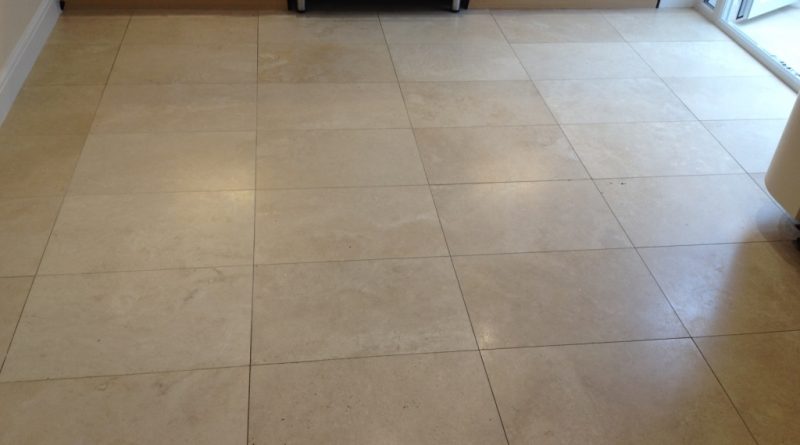Polishing and Filling Travertine Floor Tiles in Telford
This Travertine tiled floor was installed in the Kitchen, Hallway and downstairs WC at a property in the Telford suburb of Priorslee. It has been some time since it was last sealed and the sealer had now worn-down allowing dirt to become ingrained in the stone, as a result the floor now looked flat and un-interesting. The floor also had several holes that were trapping dirt and needed filling.
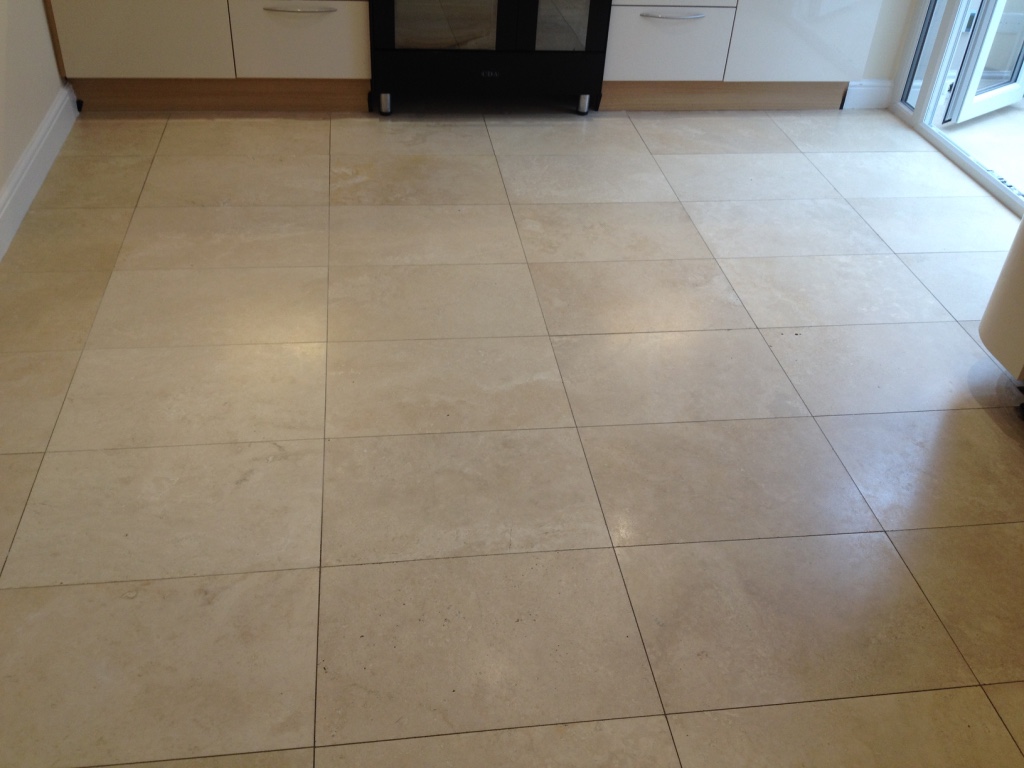
I surveyed the floor and recommended a process called burnishing which uses a series of abrasive pads to restore the polished appearance of the stone. Once done the floor would be sealed to protect it from dirt and staining going forward. The owner agreed my quote and we set a date for my return to restore the appearance of the floor.
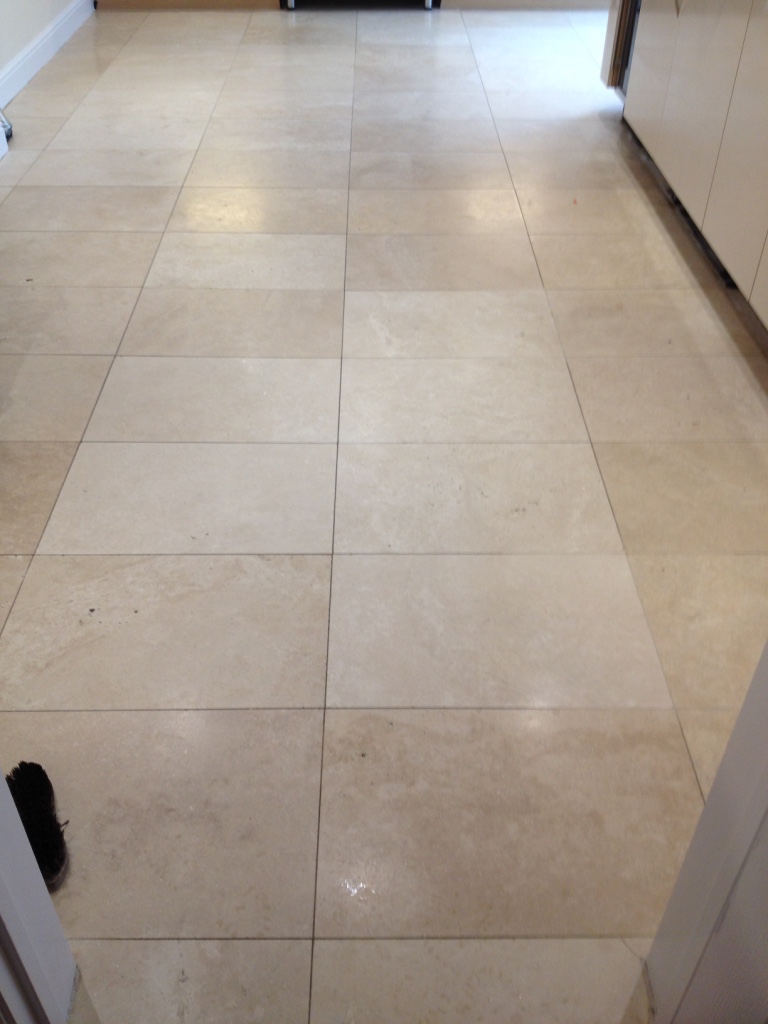 |
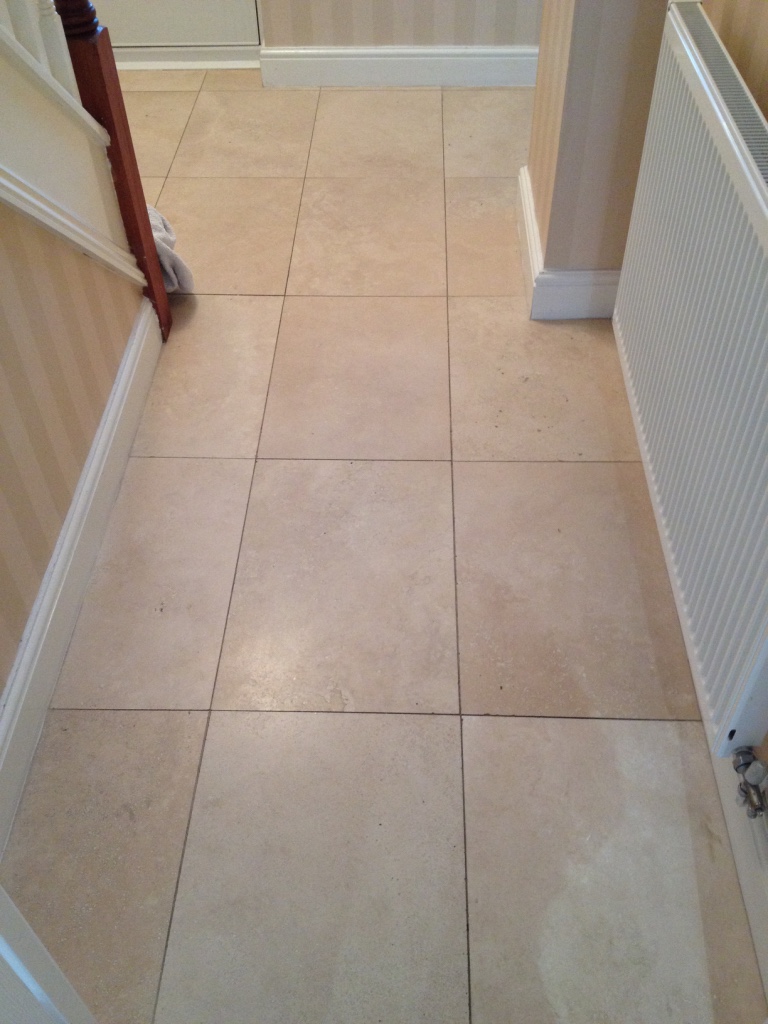 |
Cleaning Travertine Floor Tile and Grout
Before starting the cleaning process, I spent time protecting the woodwork and removing the kickboards from underneath the kitchen units.
Then working in sections I gave the floor a general wash to remove any grit and clean the grout. Focusing primarily on the grout I applied a medium dilution Tile Doctor Pro-Clean and left it to soak in. The solution was left to dwell for roughly ten minutes in order for it to digest the dirt and remaining sealer. I then used a deck brush on the tiles and a stiff grout brush along the grout lines to scrub the solution in and release the dirty. The floor was then rinsed with water and the now soiled cleaning solution was removed using a wet vacuum.
The next step was to burnish the stone using a set of diamond encrusted pads which are applied to the floor using a rotary floor buffer in sequence from coarse to super fine. First using the 400-grit coarse number 1 pad we put some clean water on the floor and using our rotary machine slowly burnished the area making sure that we passed over each tile 4 times, this coarse pad cuts into the surface grime of the floor and also removes sealers. The resultant soiled water is rinsed away with clean water which in turn is removed using a wet vacuum. This process is then repeated with the 800-grit medium and 1500-grit fine pads, rinsing between each pad until a nice polish is built up on the tile. The floor is then given a final rinse and once we were satisfied that all the slurry had been removed.
Last job for the evening was to inspect the floor and fill the small holes using grout in a colour that matched that of the Travertine. The floor was then left to dry off overnight.
Polishing and Sealing Travertine Floor Tiles
On day two I continued the burnishing process by applying the very fine 3000 grit pad. This last pad is applied dry with only a small amount of water which is sprayed onto the floor and further builds on the polished appearance of the Travertine. This also has the advantage of leaving the floor completely dry and ready for sealing.
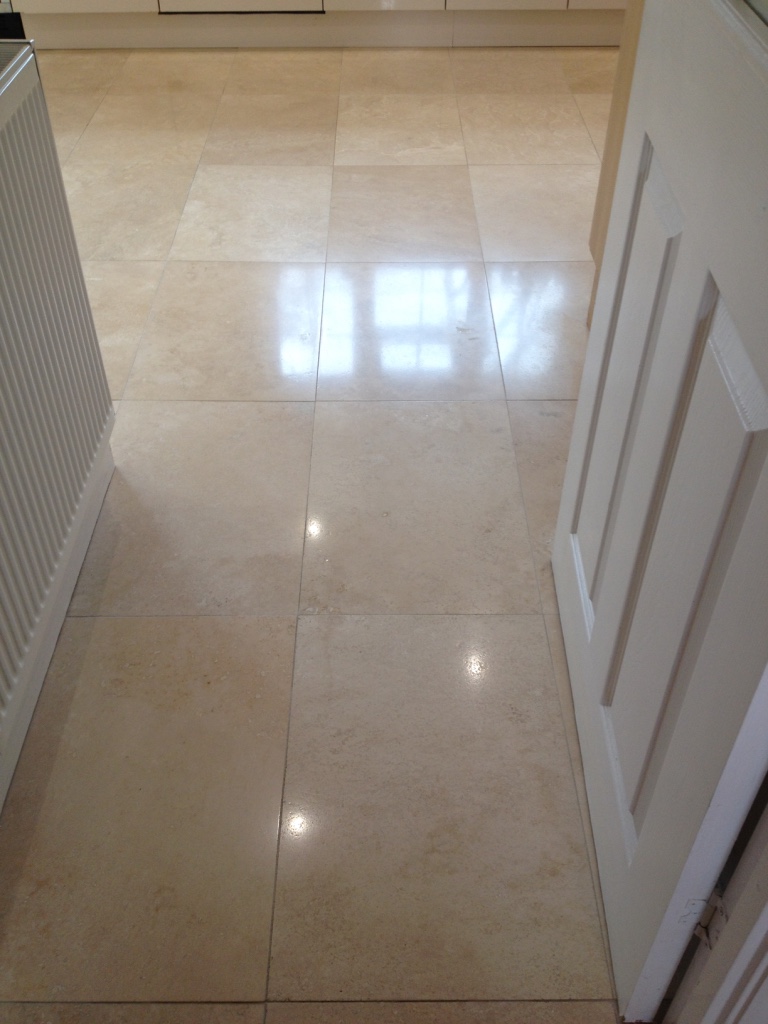 |
 |
We have several sealers that we recommend for use on Travertine and for this situation I applied two coats of Tile Doctor Colour Grow which is an impregnating sealer that occupies the pores in the stone thus preventing dirt from becoming ingrained there. Colour Grow as its name suggests enhances the colours in the stone and when applied to Travertine it does a good job of enhancing the natural brown colours in the stone. My client was certainly impressed with the improvement and was over the moon with when they saw the result.
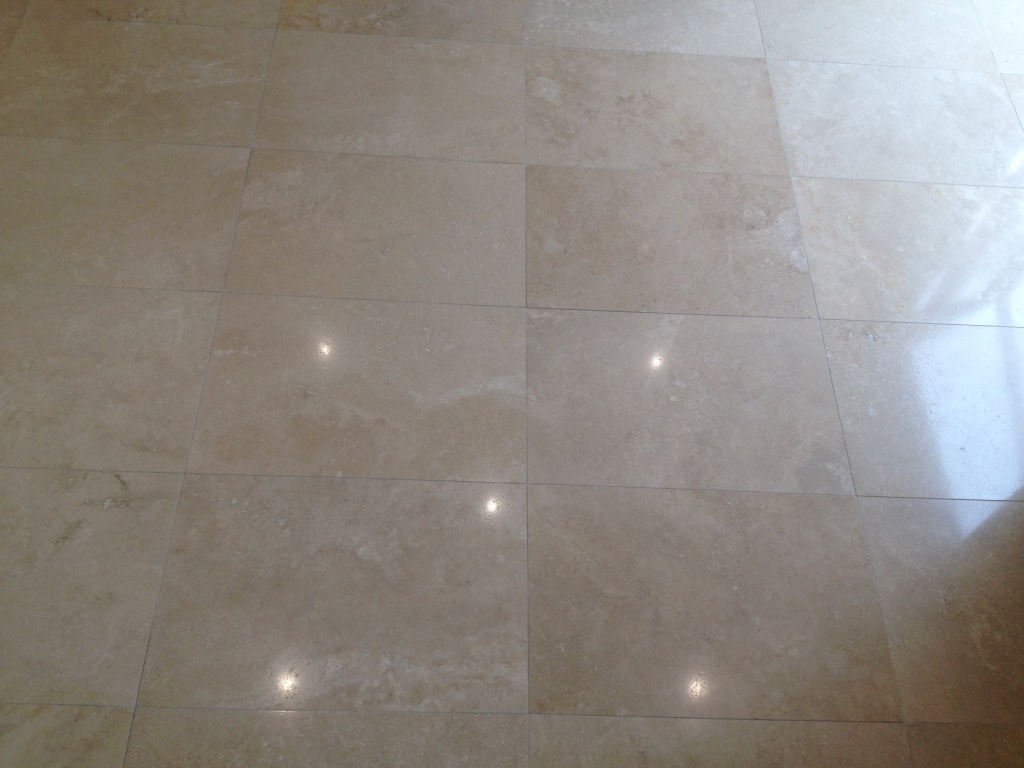
Source: Travertine Tile Cleaning, Polishing and Sealing Service in Telford, Shropshire
